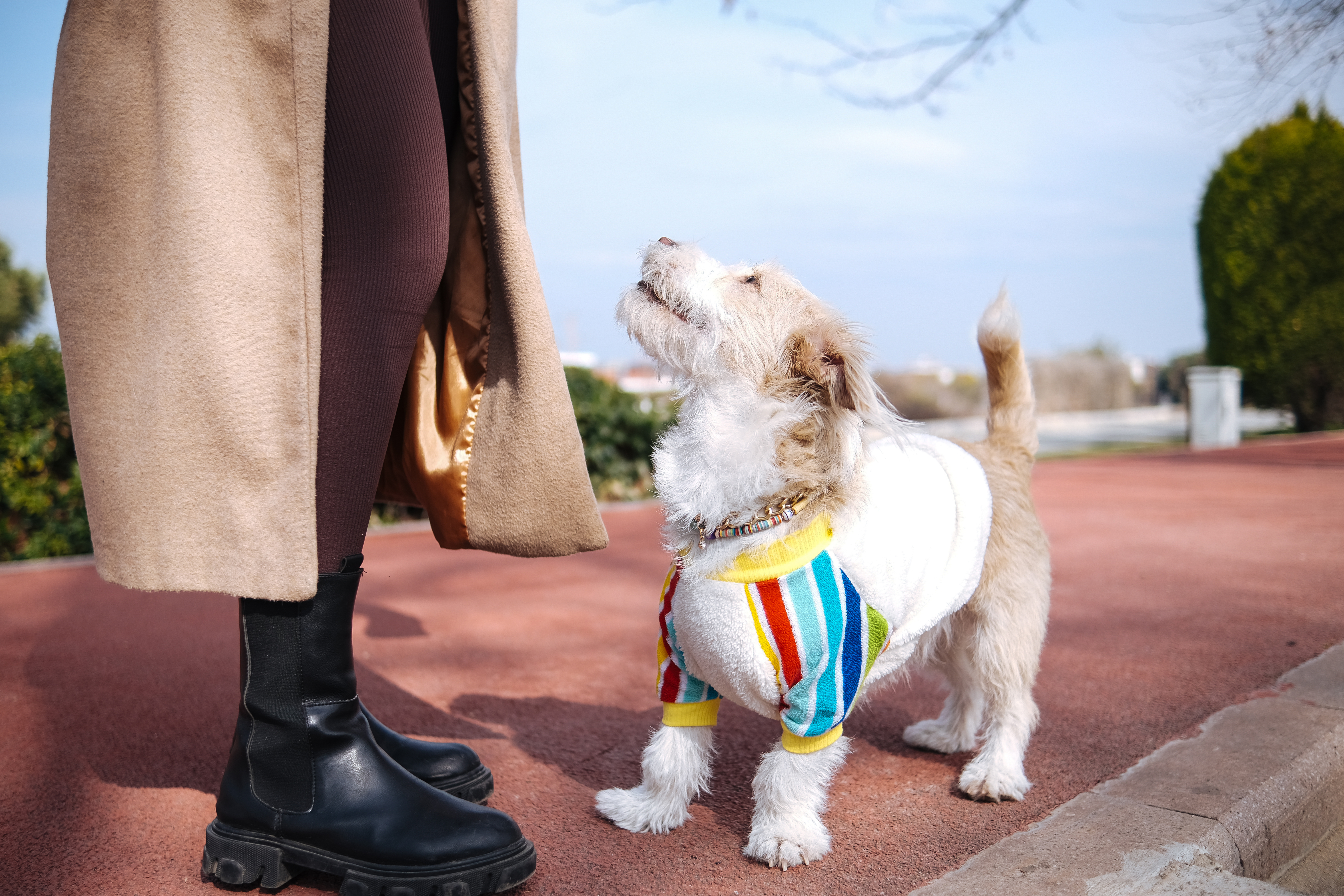As Halloween draws near, excitement fills the air—not just for humans, but for our four-legged friends too! Many pet parents delight in dressing their dogs in festive Halloween costumes. From spooky skeletons to adorable pumpkins, the options are endless. However, before slipping your pup into their new outfit, it's vital to follow dog costume safety tips to keep your furry friend comfortable and safe.
Let’s dive into the top 8 safety tips every pet owner should follow this Halloween season.
1. Know Your Dog’s Comfort Level
Not all dogs enjoy wearing costumes. Some may become anxious, nervous, or stressed when dressed up. Always observe your dog's behavior before and during dress-up.
Watch for warning signs
- Whining or barking
- Trying to remove the costume
- Freezing or refusing to walk
If your dog displays any of these, consider using a simple accessory like a themed bandana instead.
2. Choose a Comfortable Costume
Prioritize the right material
Look for costumes made with:- Soft, breathable fabrics
- Lightweight construction
- Stretchable materials
Avoid restrictive designs
- Costumes should allow your dog to walk, run, and sit comfortably
- Avoid anything that restricts their legs, neck, or abdomen
3. Prioritize Costume Safety
Inspect for hazards
- Remove small parts like buttons or beads
- Avoid tight bands or harsh Velcro
- Check stitching to ensure durability
Outdoor safety check
- Ensure nothing can get caught on bushes, fences, or sharp objects during walks.
4. Test the Costume Before the Big Night
Practice sessions
Let your dog wear the costume for:
- 5–10 minutes daily
- A few days before Halloween
Make necessary changes to improve fit and reduce any rubbing or tightness.
5. Ensure Clear Visibility and Hearing
Keep their senses open
- Avoid costumes that block eyes or ears
- Ensure hearing is not muffled by hoods or hats
Trick-or-treat tip
Visibility is crucial during nighttime events. Choose light-colored costumes or add reflective strips.
6. Monitor Your Dog's Body Language
Key distress signals
- Excessive scratching
- Hiding or cowering
- Pawing at the costume
If any of these behaviors appear, remove the costume and offer comfort.
7. Prepare for Treats, Water, and Potty Breaks
Costume functionality
Ensure the costume:
- Allows your dog to relieve themselves without struggle
- Doesn’t cover feeding areas or water access
Stay ready for messes
Pack extra bags, wipes, and maybe even a backup costume.
8. Avoid Masks and Headgear
Know the risks
- Masks may obstruct vision or breathing
- Headgear can cause anxiety or discomfort
Safe alternatives
- Themed bandanas
- Halloween collars
- Lightweight vests with spooky prints
Final Thoughts on Dog Costume Safety Tips
Dressing your dog for Halloween can be a fun, heartwarming activity—but only when your dog is safe and comfortable. By following these dog costume safety tips, you’ll make sure Halloween is enjoyable for everyone, including your furry best friend.
Check out trusted advice from the Animal Humane Society for more pet safety tips.
Frequently Asked Questions
1. Are Halloween costumes safe for dogs?
Yes—if they are breathable, well-fitted, and free of dangerous parts.
2. How do I know if my dog is uncomfortable in a costume?
Signs include whining, cowering, freezing, or scratching at the costume.
3. Can I leave my dog unattended in a costume?
No. Always supervise your dog to prevent injury or stress.
4. What material is best for dog costumes?
Cotton and mesh are ideal for comfort and breathability.
5. Should my dog wear a costume during trick-or-treating?
Only if they’re fully comfortable and can move, see, and hear without issues.
What’s a good alternative for costume-hating dogs?
Try festive collars, leashes, or bandanas for a simple and stress-free option.
.png)


